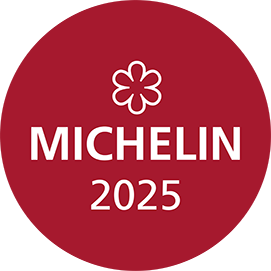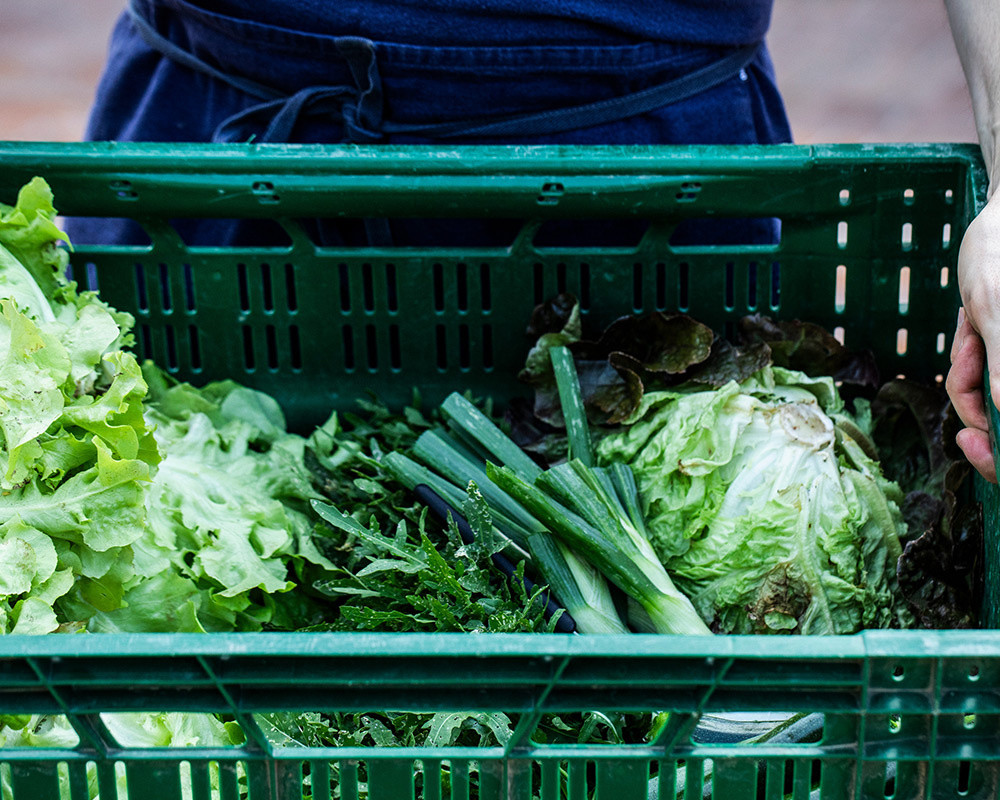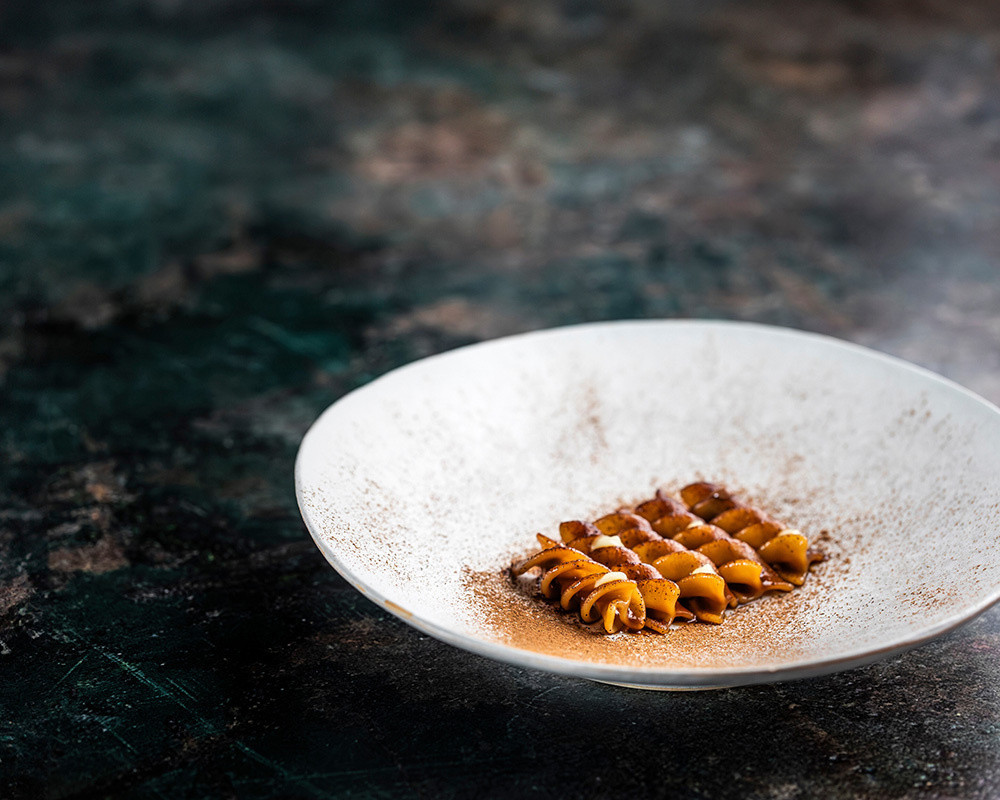The future is shaped by everyday actions. That is why our choices embrace sustainability and respect nature at every step.
The Garden, Orchard & Valley
Here, nature is not an abstract idea but the living world that surrounds the restaurant, set within the rich biodiversity of the Feniletto Valley.
We gather wild herbs and flowers as unexpected gifts. Bees — vital guardians of environmental health — thrive in this oasis, producing an organic wildflower honey that reflects the essence of the valley’s flora.
Our organic vegetable garden, just steps from the restaurant, provides seasonal produce grown in harmony with regenerative crop rotation, ensuring the soil remains healthy and fertile.
The orchard, home to ancient fruit varieties long forgotten by conventional agriculture, offers sweet, delicate fruits for our preserves and mustards, as well as juices and extracts featured in our pairings. We also ferment and pickle — even walnuts and hazelnuts — while our plums are used for umeboshi and broths served during the oshibori ritual.
Guided by chef Francesco Sodano’s passion for doughs and fermentation, we cultivate ancient varieties of soft wheat and corn, ideal for breadmaking. The organic eggs we use come from our own free-ranging hens, raised beside the garden.
Zero-Waste Dishes
Reducing waste is more than a goal — it is a philosophy. Combined with culinary prowess, it inspires the creation of new dishes. Many of chef Francesco Sodano’s signatures revolve around a single ingredient, using every part to highlight its character without waste.
Examples include “Leek Between Smoke and Ash”, “Dirty Cuttlefish and Friarielli”, “No Escape”, and “Eliche Bread and Oil”. In the latter, one element is created from another dish — a miso made from brioche bread.
Renewable Energy
Ristorante Famiglia Rana uses only electricity from renewable sources. This tangible commitment reduces greenhouse gas emissions and air pollution, contributing to a cleaner, more sustainable future.
Composting & Recycling
Vegetable waste, along with pruning residues from the orchard and garden, is transformed into compost — a natural fertiliser for our fields, garden, and flowers. The resulting compost closes the circle, a true example of circularity where beginning and end are one.




